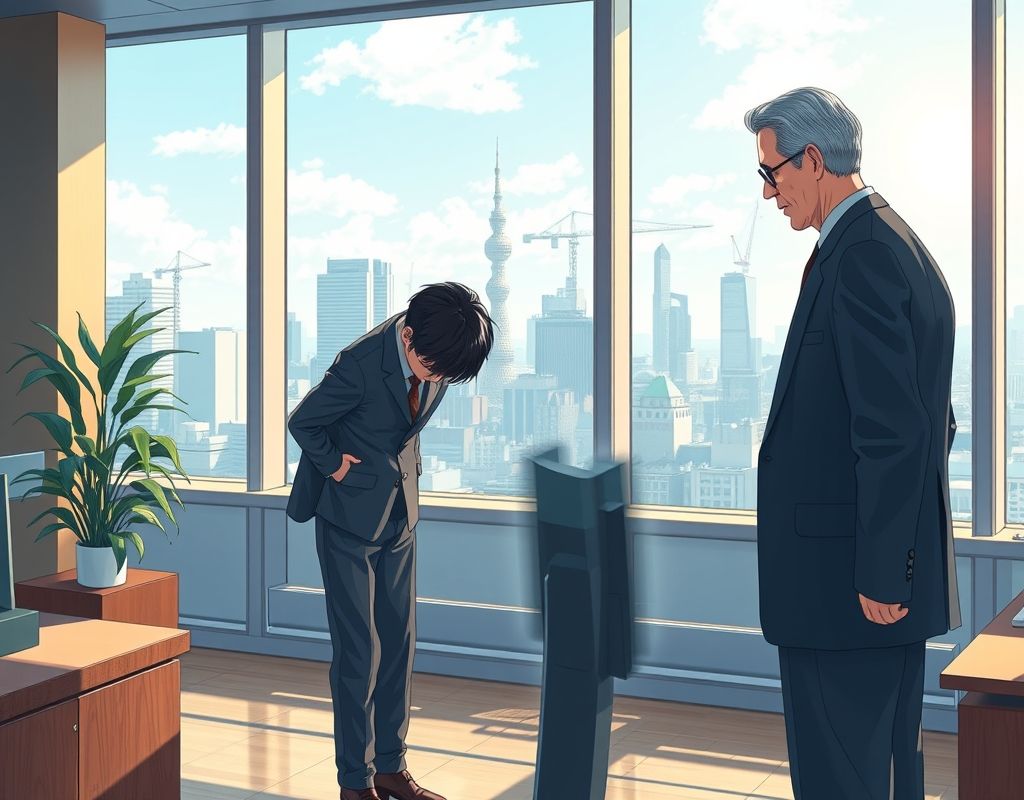
Gokurosama: Don't Praise Your Boss's Hard Work!
「ご苦労様」: The Praise Only Superiors Can Give
Have you ever seen your boss wrapping up a long day, wanted to say something nice, and blurted out, 「部長、ご苦労様でした!」 (Buchou, gokurousama deshita!)?
If your boss just gave a weak smile or paused for a moment, you might have accidentally stepped out of line. 😱
In Japanese, although both phrases can be translated as "Thank you for your hard work," 「ご苦労様」 and 「お疲れ様」 carry a crucial difference in social status.
🧐 「ご苦労様」: The "Top-Down" Praise
This is a phrase used by someone of higher status (boss, senior, elder) to acknowledge and thank the efforts of someone of lower status (employee, junior).
It inherently carries a nuance of "ue kara mesen" (上から目線), meaning "a gaze from above." Therefore, an employee saying this to their boss is considered impolite, as if you are 'evaluating' your boss's work.
- Boss to employee: 「今日の会議の資料、ありがとう。ご苦労様。」(Thanks for the meeting materials. Good work.) -> ✅ OK
- Employee to boss: 「部長、ご苦労様でした。」 -> ❌ A big NO-NO!
✨ 「お疲れ様」: The All-Purpose Safe Bet
This is your savior. 「お疲れ様」(Otsukaresama) is a neutral greeting and acknowledgment that recognizes mutual effort.
It can be used in any situation, with anyone, regardless of rank:
- Junior to senior: 「課長、お疲れ様です。」 (Section Chief, thank you for your hard work.) 🙇♀️
- Senior to junior: 「田中君、お疲れ様。」 (Tanaka-kun, good work.)
- Between colleagues: 「お疲れ様でーす!」 (Hey, great work everyone!) 👋
- When answering a work call: 「はい、〇〇です。あ、山田さん、お疲れ様です。」 (Hello, this is 〇〇 company. Ah, Yamada-san, hello.) 📞
💡 Pro Tip
To be absolutely safe in a Japanese office environment, make 「お疲れ様です・でした」 your default.
Save 「ご苦労様」 for when you become the CEO and want to praise your employees! 😉
Thẻ liên quan:
Lan tỏa kiến thức
Chia sẻ những điều hay ho với bạn bè